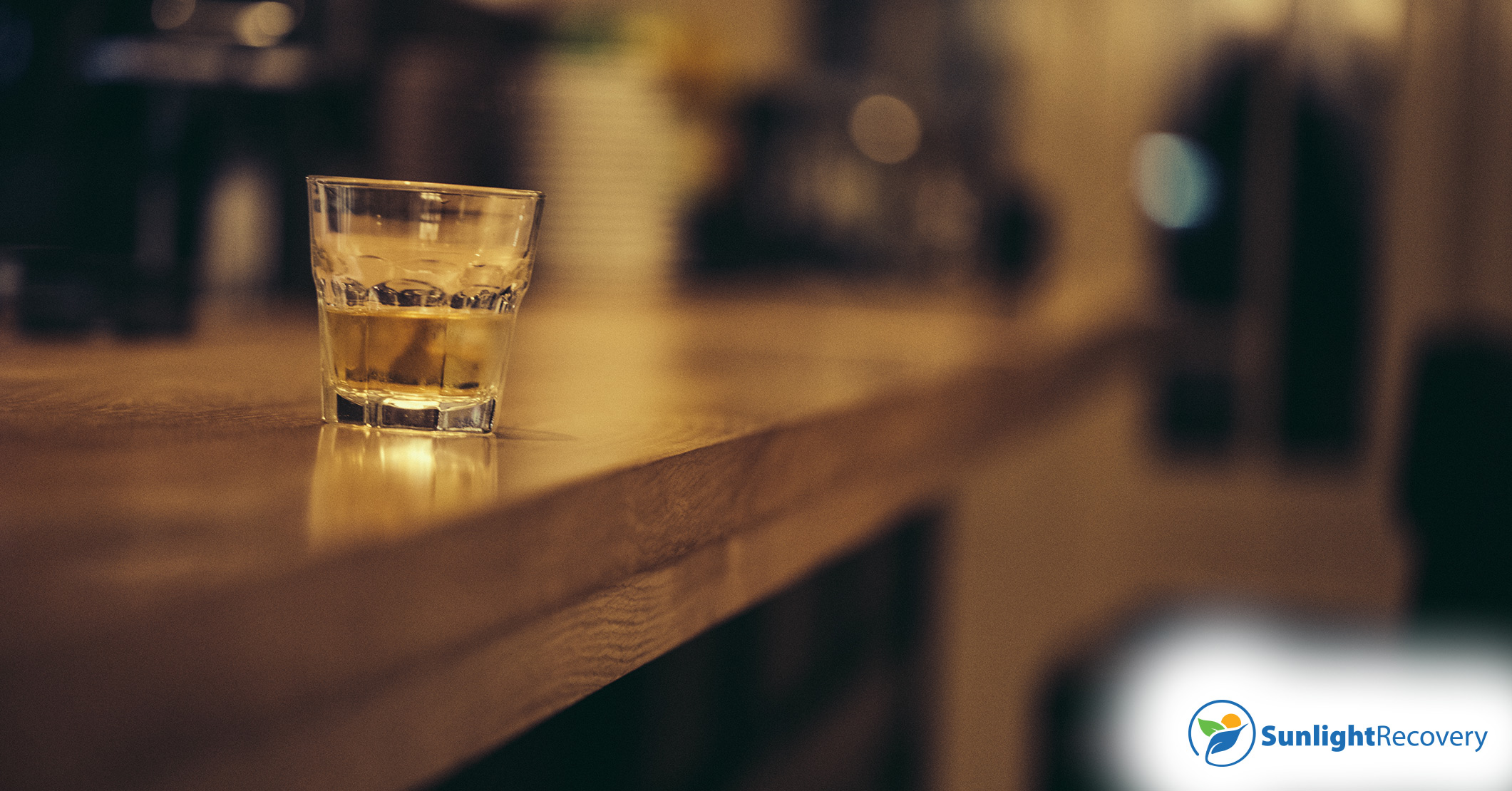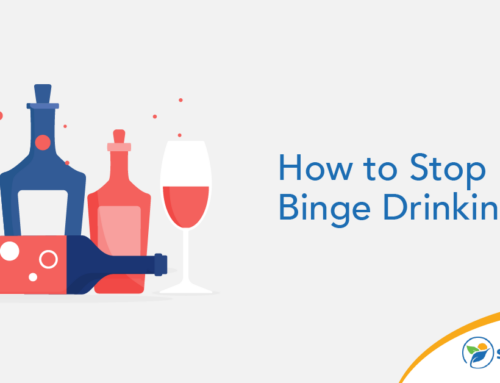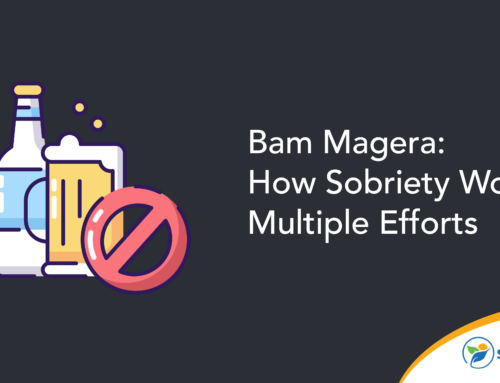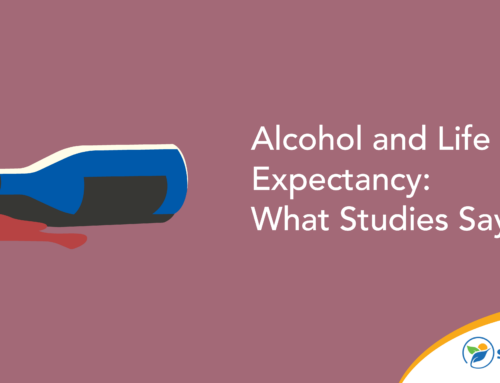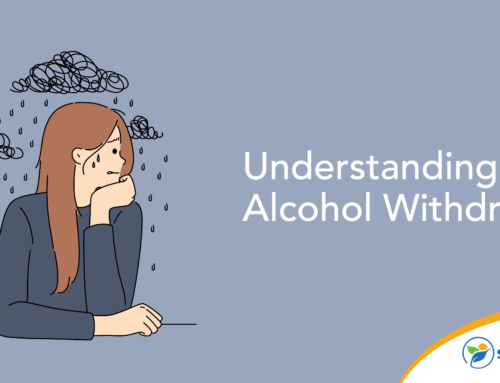Most people have one or two funny anecdotes about “that one time” they had too much to drink. The odd excessive drinking incident doesn’t necessarily mean someone has addiction issues.
However, just because anyone can take part in binge drinking doesn’t mean it’s not dangerous. Rapid alcohol consumption risks can range from temporary embarrassment to severe injury and even death. Let’s take a look at the associated dangers of excessive drinking.
What Is Rapid Alcohol Consumption?
Rapid alcohol consumption, commonly known as binge drinking, is when you ingest large amounts of alcohol within a short timeframe, leading to a blood alcohol concentration (BAC) of 0.08% or higher. In most U.S. states, that’s the maximum before you’re considered too impaired to drive. The CDC defines binge drinking as having more than four or five, depending on your sex, consecutive drinks in one sitting.
Young adults under the age of 34 are more likely to engage in rapid alcohol consumption, especially at social events such as parties or going out with friends. Young people, especially men, may feel pressured to “chug” their beers, participate in drinking games or take shots of liquor.
But the phenomenon is even more widespread. The CDC estimates one in six Americans binge drinks, with a quarter of that population admitting to weekly binges. For some of these drinkers, a binge can mean ingesting more than eight drinks in a single sitting.
Understanding Rapid Alcohol Consumption Risks
Despite how common rapid alcohol consumption is, the risks far outweigh any potential fun. One immediate danger is the impact on cognitive function. As blood alcohol concentration rises, impaired neurotransmitter activity can affect your judgment and decision-making, as well as slow down your reaction times.
Impaired cognitive function increases chances of accident and injury, while lowered inhibitions can lead to risky behaviors such as unprotected sex. Binge drinking also increases the likelihood of becoming a victim of domestic violence, assault or robbery.
Blacking out is a more immediate and common consequence of binge drinking. When you experience a blackout, your ability to consolidate short-term memories is impaired, so you may engage in activities without recollection the following day. Combined with lowered inhibitions and impaired judgments, blackouts can result in potential legal and social ramifications. Such memory lapses strain relationships and compromise personal safety.
Consuming any alcohol is dangerous while pregnant, but binge drinking can cause a miscarriage and serious health concerns for your baby, such as fetal alcohol spectrum disorder. In some cases, it can lead to long-term birth defects and even stillbirth.
Rapid alcohol ingestion can cause potentially lethal alcohol poisoning. If you or someone you know experiences the following symptoms, call 911 immediately.
- Confusion. Feeling disoriented or unresponsive
- Vomiting. Throwing up uncontrollably, especially if unconscious or semi-conscious
- Seizures. Sudden, uncontrolled movements and convulsions
- Slow or irregular breathing. Reduced activity in the brain and central nervous system can affect breathing
- Hypothermia. The skin may feel clammy and cool to the touch
- Blue or pale skin. This discoloration is a sign of inadequate oxygen supply
Binge drinking dangers aren’t limited to the short term and can affect longer-term health outcomes. The liver, tasked with metabolizing alcohol, can suffer inflammation and fatty liver disease due to excessive consumption. Prolonged binge drinking increases the risk of liver cirrhosis, a serious and potentially fatal condition.
Cardiovascular health also takes a hit, as binge drinking contributes to high blood pressure, irregular heartbeat and an elevated risk of heart disease. Excessive drinking hazards include a lowered immune system, making you more susceptible to illnesses and infections. Several cancers have been linked to binge drinking, including throat cancer, stomach cancer, breast cancer and liver cancer.
Binge Drinking and Mental Health
Mental health isn’t immune to the consequences of binge drinking. Chronic and excessive alcohol consumption disrupts the delicate balance of neurotransmitters in the brain, causing negative effects on your mental well-being.
Binge drinking can worsen existing mental health conditions, such as bipolar disorder and schizophrenia. Alcohol abuse can contribute to the onset of substance-induced psychotic disorders, characterized by hallucinations, delusions and disorganized thinking. Drinking also interferes with medication effectiveness and may worsen mood swings, even causing psychotic symptoms under certain circumstances.
Rapid alcohol consumption may cause anxiety disorders. You might be familiar with the term “hangxiety” to refer to the anxiety attacks many experience during a hangover. As a depressant, drinking initially causes you to feel relaxed. But as the substance wears off, you may experience heightened anxiety, restlessness and even sudden panic.
Long-term binge drinking may lead to low mood and depression. Alcohol’s impact on neurotransmitters like serotonin can result in mood disturbances and increased feelings of hopelessness.
While drinking may make you feel sleepy, alcohol is very damaging to your overall sleep quality. Drinking disrupts sleep patterns and can contribute to the development of sleep disorders such as insomnia. Poor sleep quality exacerbates mental health conditions, including increased stress and irritability.
Frequent binge drinking episodes may cause alcohol use disorder. What starts as an occasional binge drinking episode can quickly turn into a weekly or daily habit.
Do You Have a Drinking Problem?
If you suspect you’re engaging in binge drinking too often, you may want to reflect on your habits and learn how to recognize the signs of having a problematic relationship with drinking. Consider how your drinking affects aspects of your life, such as your relationships, work or school performance. Be aware of common warning signs of alcohol dependence or addiction. Some common symptoms of alcohol use disorder include:
- Cravings for alcohol. Do you spend most of your time thinking about your next drink?
- Increased tolerance levels. You might find you need increasingly higher amounts to feel the same initial buzz.
- Withdrawal symptoms when not drinking. Symptoms include shaking, lack of appetite, nausea and irritability.
- Neglecting your responsibilities. Do you frequently cancel work meetings, call in sick or forget about important family events?
If you’re struggling to cut back on your drinking or experiencing significant distress related to alcohol use, it may be time to seek professional help. At Sunlight Recovery, we provide provide guidance and offer treatment options tailored to your needs. Don’t delay — get in touch with one of our addiction specialists today.


